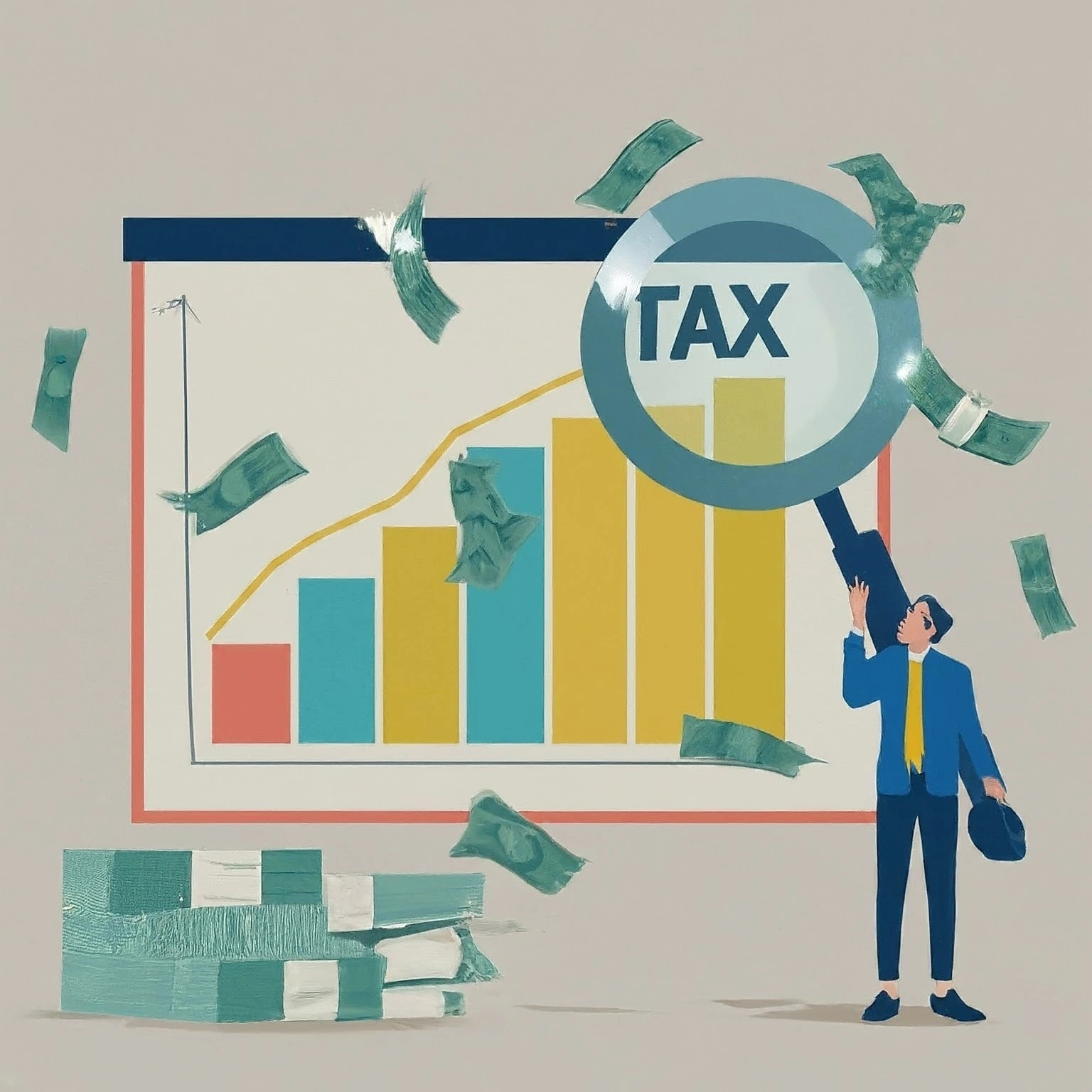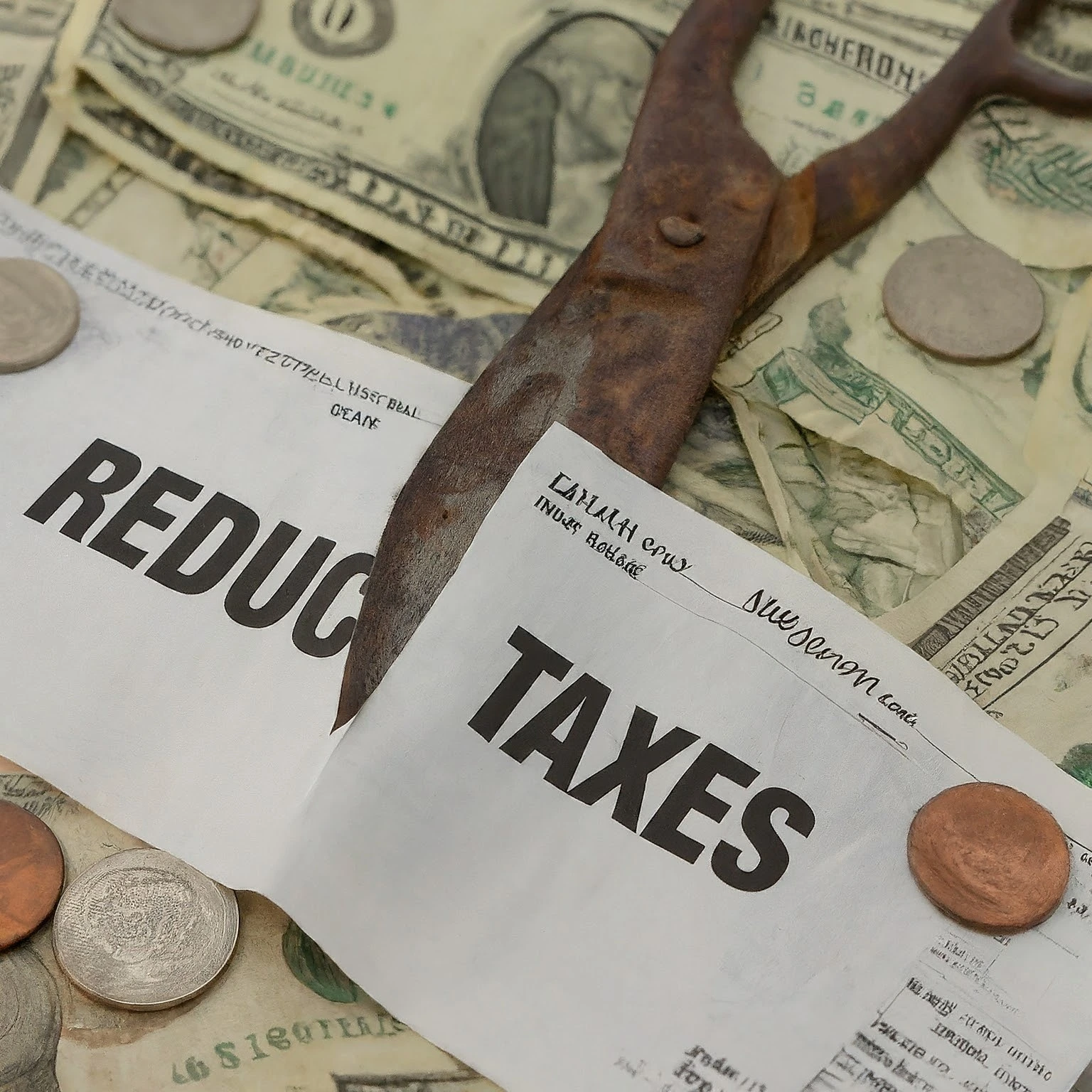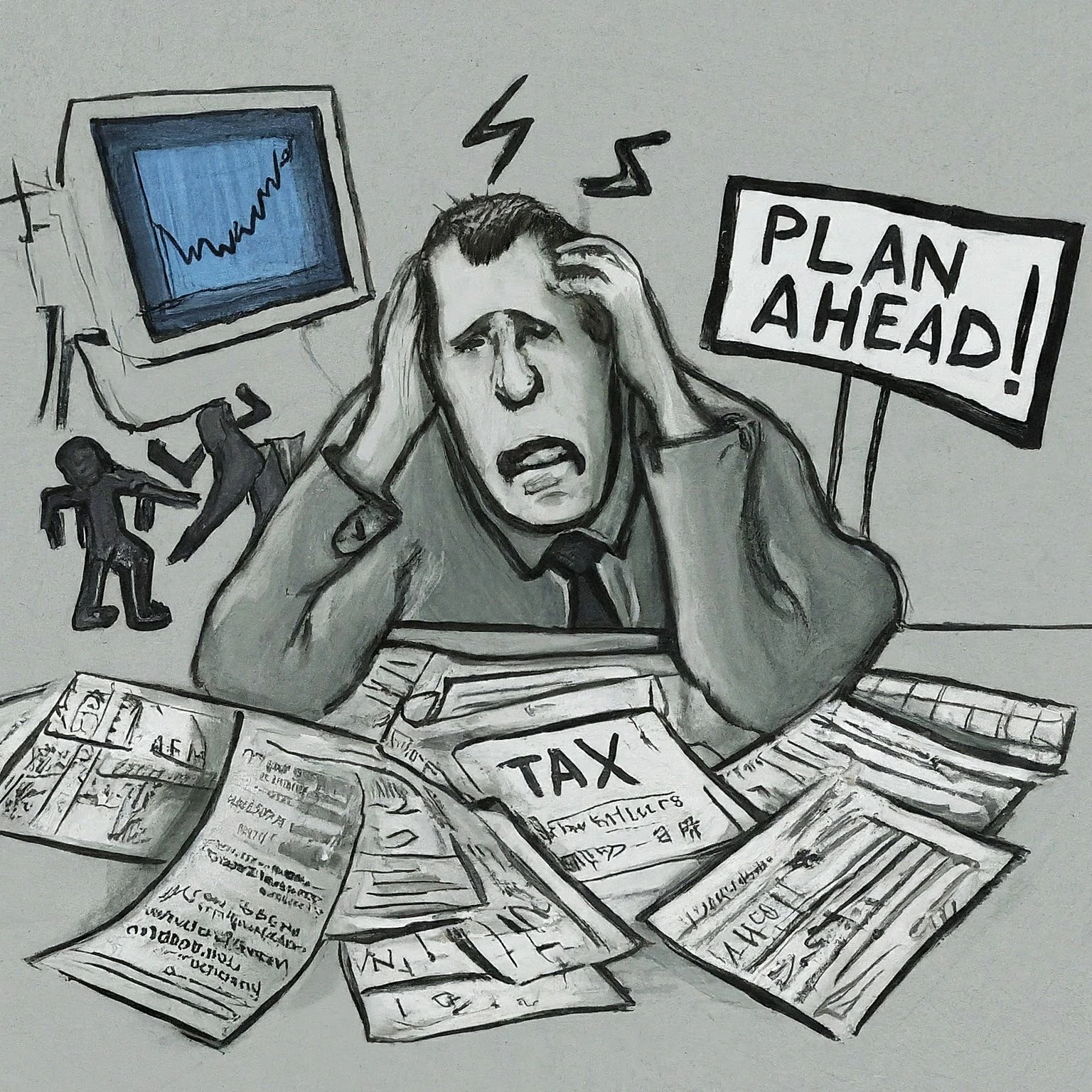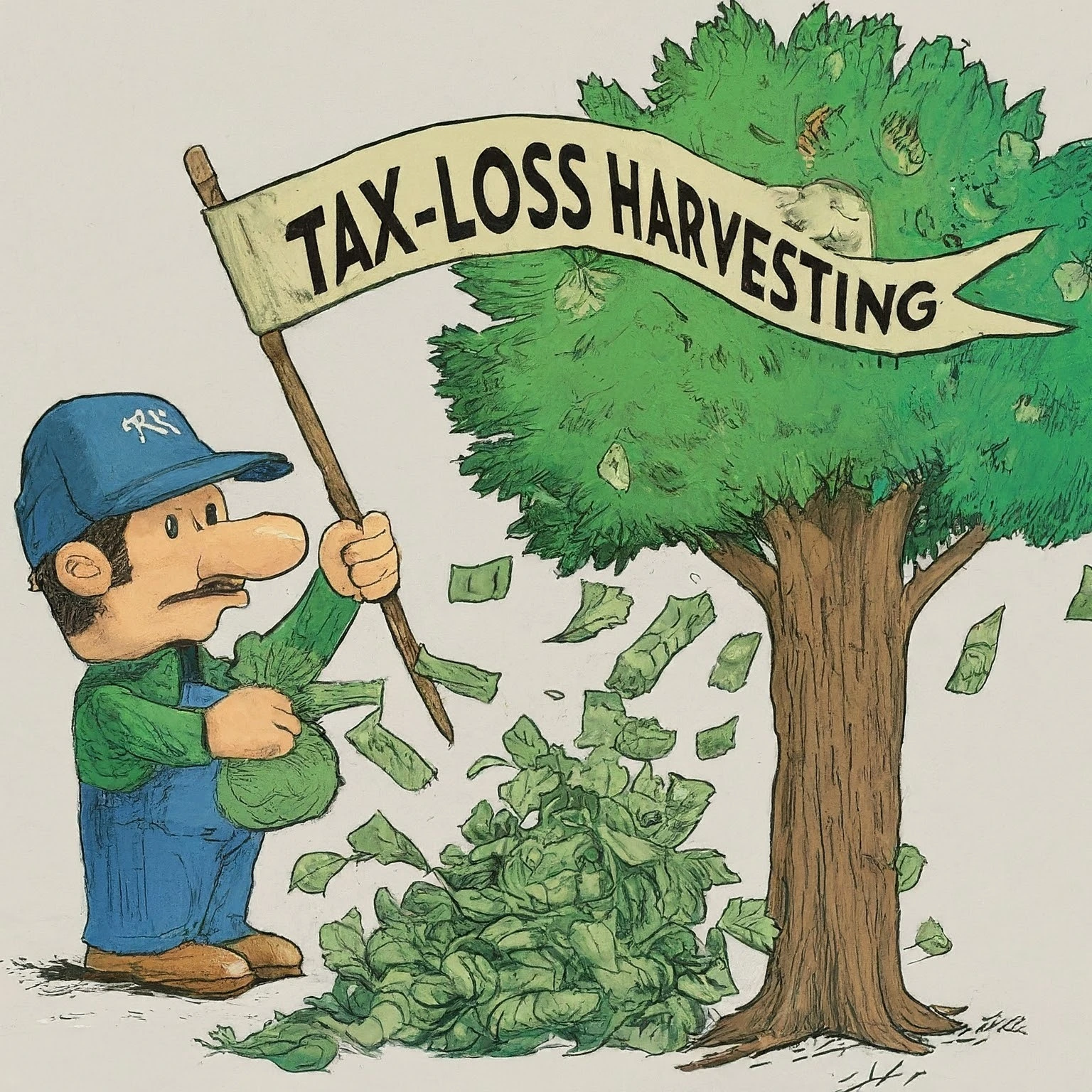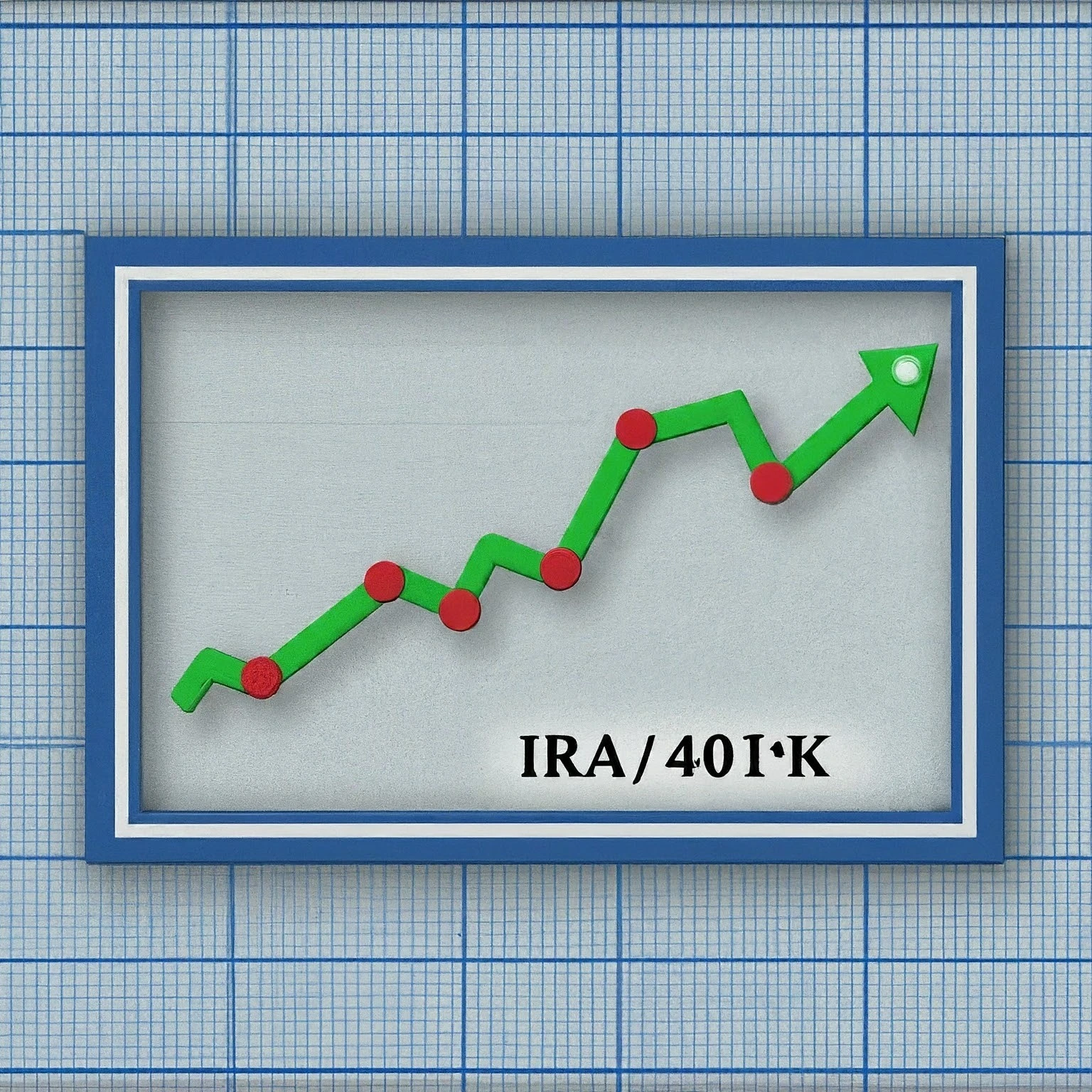
Taxes for Stock Investors
Taxes for stock investors encompass the tax obligations arising from activities such as buying, holding, and selling stocks. These include capital gains tax on profits from selling stocks, with rates differing based on whether the gains are short-term (taxed as ordinary income) or long-term (taxed at lower rates). Additionally, investors pay taxes on dividends received, which may be taxed as qualified dividends at favorable rates or as ordinary income. Understanding these taxes is crucial for effective investment planning and maximizing after-tax returns.
Taxes For Stock Investors Guide

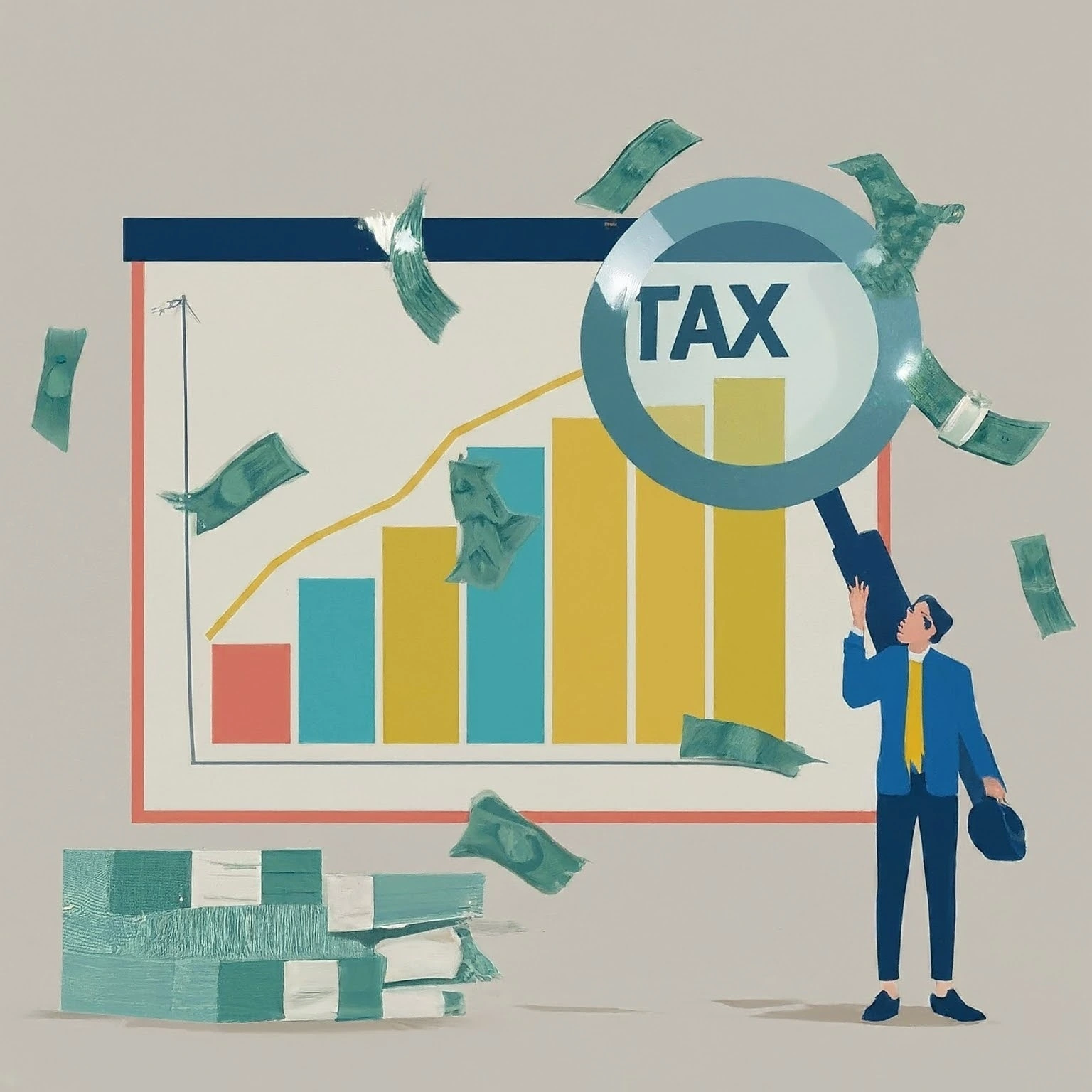


Taxes For Stock Investors Glossary
- 0% Capital Gains Rate(Noun)
- /zer-oh per-sent kap-i-tl gaynz rayt/
- Definition: The tax rate at which long-term capital gains are taxed at zero percent for individuals within specific income brackets.
- Etymology: "Capital gains" originates from the Latin "caput," meaning "head," referring to principal investment, and "gains" from Old French "gaigner," meaning "to earn." The term refers to profits made from selling assets.
- Opposite: Taxable capital gains
- Example: "Low-income investors may qualify for the 0% capital gains rate, minimizing their tax liability."
- 1099-B(Noun)
- /ten-nine-tee-nine bee/
- Definition: A tax form provided by brokers that details the proceeds from the sale of stocks, bonds, and other securities.
- Etymology: The "1099" series comes from the U.S. tax form numbering system, and "B" stands for broker-related transactions.
- Example: "Investors receive a 1099-B to report their capital gains and losses on their tax returns."
- 1099-DIV(Noun)
- /ten-nine-tee-nine div/
- Definition: A tax form used to report dividends and distributions paid to shareholders by corporations and mutual funds.
- Etymology: "DIV" abbreviates "dividends," which comes from the Latin "dividendum," meaning "thing to be divided."
- Example: "Your 1099-DIV form will detail the dividends you earned this year for tax reporting."
- 15% Capital Gains Rate(Noun)
- /fif-teen per-sent kap-i-tl gaynz rayt/
- Definition: The tax rate at which long-term capital gains are taxed at 15% for individuals within specific income brackets.
- Etymology: "Capital gains" refers to profits from selling assets, and "15%" indicates the tax percentage applied.
- Opposite: Tax-free capital gains
- Example: "Most middle-income investors fall into the 15% capital gains rate bracket."
- 20% Capital Gains Rate(Noun)
- /twen-tee per-sent kap-i-tl gaynz rayt/
- Definition: The tax rate at which long-term capital gains are taxed at 20% for individuals with higher income levels.
- Etymology: "Capital gains" comes from "capital" meaning principal investment, and "gains," meaning profit, with "20%" being the applicable tax rate.
- Opposite: Lower capital gains rates
- Example: "High-income investors may be subject to the 20% capital gains rate on their profits."
- 3.8% Medicare Surtax(Noun)
- /three-poynt-ayt per-sent med-i-care sur-tax/
- Definition: A tax levied on net investment income for individuals with high incomes, imposed to fund Medicare.
- Etymology: "Surtax" combines "sur," meaning over, and "tax," from Latin "taxare," meaning "to assess." It specifically refers to an additional tax on high earners.
- Example: "The 3.8% Medicare surtax applies to high earners with substantial investment income."
- AMT (Alternative Minimum Tax)(Noun)
- /A-M-T (awl-ter-nuh-tiv min-i-mum taks)/
- Definition: A parallel tax system designed to ensure that high-income individuals pay at least a minimum amount of tax.
- Etymology: "Alternative" from Latin "alternare," meaning "to change," and "minimum tax" refers to the lowest level of tax due.
- Opposite: Regular tax
- Example: "The AMT ensures that wealthy taxpayers cannot avoid paying taxes through excessive deductions."
- AMT Credit(Noun)
- /A-M-T kred-it/
- Definition: A tax credit that allows taxpayers who paid AMT in previous years to offset their regular tax in future years.
- Etymology: "Credit" comes from Latin "creditum," meaning "a loan or trust," referring here to a reduction in tax liability.
- Example: "You can use the AMT credit in years when your regular tax exceeds your AMT."
- Capital Gains Exclusion(Noun)
- /kap-i-tl gaynz eks-kloo-zhun/
- Definition: A provision that allows taxpayers to exclude a portion of capital gains from the sale of certain assets, like a primary residence, from taxable income.
- Etymology: "Exclusion" comes from Latin "excludere," meaning "to shut out," here used to refer to gains that are not taxed.
- Opposite: Capital gains inclusion
- Example: "The capital gains exclusion can help homeowners avoid taxes when selling their primary residence."
- Capital Gains Exemption(Noun)
- /kap-i-tl gaynz ig-zemp-shun/
- Definition: A tax rule that allows certain capital gains to be completely free from taxation, often subject to specific criteria.
- Etymology: "Exemption" from Latin "exemptio," meaning "freedom from liability," in finance, it refers to gains that are not taxed.
- Opposite: Taxable capital gains
- Example: "Small business owners may qualify for a capital gains exemption when selling qualifying assets."
- Capital Gains Tax(Noun)
- /kap-i-tl gaynz taks/
- Definition: A tax on the profit from the sale of an asset held for more than a year.
- Etymology: "Capital" refers to assets or wealth, and "gains" means profit, combined with "tax" from Latin "taxare," meaning "to assess."
- Opposite: Tax-free capital gains
- Example: "Investors need to consider capital gains tax when selling their stocks for a profit."
- Capital Loss Carryover(Noun)
- /kap-i-tl laws kar-ee-oh-ver/
- Definition: The practice of carrying over a capital loss to future tax years to offset future capital gains.
- Etymology: "Carryover" combines "carry," meaning to transfer, and "over," meaning to another period, used in taxation to describe deferred losses.
- Opposite: Capital gain carryover
- Example: "Capital loss carryover can be used to reduce your taxable gains in future years."
- Capital Loss Deduction(Noun)
- /kap-i-tl laws dih-duhk-shun/
- Definition: A tax deduction that allows individuals to offset capital losses against capital gains or other income.
- Etymology: "Deduction" from Latin "deductio," meaning "a leading away," in finance, it refers to reducing taxable income.
- Example: "You can claim a capital loss deduction to lower your taxable income."
- Carryforward Loss(Noun)
- /kar-ee-for-werd laws/
- Definition: A loss that is not fully used in one tax year and can be carried forward to offset gains in future years.
- Etymology: "Carryforward" comes from "carry," meaning to bring, and "forward," meaning to a later period, referring to deferred losses in taxation.
- Similar: Loss carryover
- Opposite: Capital gain
- Example: "The carryforward loss can reduce your taxable income in future years."
- Charitable Donation(Noun)
- /char-i-tuh-bl doh-nay-shun/
- Definition: A contribution of money or assets to a charity, which may be tax-deductible.
- Etymology: "Charitable" from Old French "charité," meaning "Christian love," and "donation" from Latin "donare," meaning "to give."
- Similar: Charitable contribution
- Example: "Making a charitable donation can lower your taxable income if you itemize deductions."
- Cost Basis(Noun)
- /kost bay-sis/
- Definition: The original value of an asset, used to determine capital gains or losses when the asset is sold.
- Etymology: "Cost" from Latin "constare," meaning "to stand firm," and "basis" from Greek "basis," meaning "step or foundation."
- Opposite: Market value
- Example: "Accurately calculating the cost basis is crucial for determining your capital gains tax."
- Dividends Received Deduction(Noun)
- /div-i-dendz ree-seevd dih-duhk-shun/
- Definition: A tax deduction that corporations can claim on dividends received from other taxable domestic corporations.
- Etymology: "Dividends" from Latin "dividendum," meaning "thing to be divided," and "deduction" from Latin "deductio," meaning "a leading away."
- Example: "The dividends received deduction helps reduce the tax burden on corporate income."
- Donor Stock Transfer(Noun)
- /doh-nor stok trans-fer/
- Definition: The process of transferring stock to a charity or another individual as a gift.
- Etymology: "Donor" from Latin "donare," meaning "to give," and "transfer" from Latin "transferre," meaning "to carry across."
- Similar: Stock gift
- Opposite: Stock sale
- Example: "A donor stock transfer can be a tax-efficient way to support charitable causes."
- Double Taxation(Noun)
- /duh-buhl tak-say-shun/
- Definition: The taxation of the same income or financial transaction at two different levels, such as corporate and personal income taxes.
- Etymology: "Double" from Latin "duplus," meaning "twofold," and "taxation" from Latin "taxare," meaning "to assess."
- Opposite: Single taxation
- Example: "Double taxation can occur when a corporation's profits are taxed at both the corporate and individual levels."
- Employee Stock Purchase Plan (ESPP)(Noun)
- /em-ploi-ee stok pur-chuhs plan/
- Definition: A program that allows employees to purchase company stock, often at a discount, through payroll deductions.
- Etymology: "Purchase" from Latin "purchasare," meaning "to acquire," and "plan" from Latin "planus," meaning "flat," here refers to an organized program.
- Example: "Many companies offer an Employee Stock Purchase Plan to encourage ownership among employees."
- Estimated Tax Payments(Noun)
- /es-tih-may-tid taks pay-mints/
- Definition: Periodic payments made by taxpayers on income not subject to withholding, such as self-employment income or investment income, to avoid penalties.
- Etymology: "Estimated" from Latin "aestimare," meaning "to value," and "tax" from Latin "taxare," meaning "to assess."
- Opposite: Withheld taxes
- Example: "Making estimated tax payments can help you avoid penalties at tax time."
- Estimated Taxes(Noun)
- /es-tih-may-tid taks-iz/
- Definition: The tax payments a taxpayer expects to owe, calculated in advance and paid periodically throughout the year.
- Etymology: "Estimated" comes from Latin "aestimare," meaning "to assess or value," and "taxes" from Latin "taxare," meaning "to assess."
- Opposite: Final taxes
- Example: "If you have significant investment income, you may need to pay estimated taxes quarterly."
- ETF Tax Efficiency(Noun)
- /E-T-F taks ih-fish-en-see/
- Definition: The ability of exchange-traded funds (ETFs) to minimize taxable events for investors, such as through in-kind transfers.
- Etymology: "Efficiency" from Latin "efficientia," meaning "producing," in this context, refers to minimizing taxes through strategic fund management.
- Opposite: Tax inefficiency
- Example: "ETFs are popular due to their tax efficiency compared to mutual funds."
- Foreign Tax Credit(Noun)
- /for-in taks kred-it/
- Definition: A tax credit available to U.S. taxpayers who pay taxes on income earned in foreign countries, designed to avoid double taxation.
- Etymology: "Credit" from Latin "creditum," meaning "a loan or trust," in finance, it refers to a reduction in tax liability.
- Example: "The foreign tax credit can help offset taxes paid to other countries on your foreign investments."
- Form 8949(Noun)
- /form ayt-tee-nine-for-tee-nine/
- Definition: A tax form used to report sales and other dispositions of capital assets, detailing gains and losses.
- Etymology: Named within the U.S. tax form numbering system, specific to reporting capital transactions.
- Example: "You must complete Form 8949 to report your capital gains and losses from stock sales."
- Gift Tax(Noun)
- /gift taks/
- Definition: A tax on the transfer of money or property from one individual to another without receiving something of equal value in return.
- Etymology: "Gift" from Old Norse "gift," meaning "something given," and "tax" from Latin "taxare," meaning "to assess."
- Opposite: Inheritance tax
- Example: "If you gift more than the annual exclusion amount, you may be subject to gift tax."
- Gifting Stocks(Noun)
- /gift-ing stoks/
- Definition: The act of transferring ownership of stock to another person or entity as a gift.
- Etymology: "Gift" from Old Norse "gift," meaning "something given," and "stock" from Old English "stocc," meaning "tree trunk, log," here used to refer to shares in a company.
- Opposite: Selling stocks
- Example: "Gifting stocks to a family member can be a tax-efficient way to transfer wealth."
- Hedge Fund Taxation(Noun)
- /hej fund tak-say-shun/
- Definition: The tax rules and considerations that apply to hedge fund investments, often involving complex structures and strategies.
- Etymology: "Hedge" from Old English "hecg," meaning "fence," and "fund" from Latin "fundus," meaning "bottom, foundation." In finance, it refers to pooled investment vehicles with various strategies, and "taxation" from Latin "taxare," meaning "to assess."
- Example: "Hedge fund taxation can be complex, often involving pass-through income and carried interest."
- Holding Period(Noun)
- /hohl-ding peer-ee-uhd/
- Definition: The amount of time an investment is held before it is sold, affecting the tax treatment of gains.
- Etymology: "Holding" from Old English "healdan," meaning "to grasp, keep," and "period" from Greek "periodos," meaning "a going around."
- Opposite: Immediate sale
- Example: "The holding period determines whether your capital gains are taxed at short-term or long-term rates."
- Holding Period Requirement(Noun)
- /hohl-ding peer-ee-uhd ree-kwai-yer-ment/
- Definition: The mandatory duration that an asset must be held to qualify for specific tax treatments, such as long-term capital gains rates.
- Etymology: "Requirement" from Latin "requirere," meaning "to seek, require," combined with "holding period," the duration an asset is held.
- Opposite: Immediate disposition
- Example: "To benefit from lower tax rates, you must meet the holding period requirement for long-term capital gains."
- Income Splitting(Noun)
- /in-kum split-ing/
- Definition: A tax strategy where income is distributed among family members to reduce the overall tax burden.
- Etymology: "Income" from Old English "income," meaning "entrance, arrival," and "splitting" from Old English "splittan," meaning "to divide."
- Opposite: Income consolidation
- Example: "Income splitting can be effective in lowering a family's tax liability."
- Inheritance Tax(Noun)
- /in-her-i-tuhns taks/
- Definition: A tax imposed on individuals who inherit property or money from a deceased person's estate.
- Etymology: "Inheritance" from Latin "hereditare," meaning "to inherit," and "tax" from Latin "taxare," meaning "to assess."
- Opposite: Estate tax
- Example: "Some states impose an inheritance tax on assets received by heirs."
- Investment Income(Noun)
- /in-vest-muhnt in-kum/
- Definition: Earnings from investments such as interest, dividends, and capital gains.
- Etymology: "Investment" from Latin "investire," meaning "to clothe," here meaning to allocate money for profit, and "income" from Old English "income," meaning "entrance, arrival."
- Similar: Passive income
- Opposite: Earned income
- Example: "Investment income is subject to different tax rates depending on the type of earnings."
- Investment Property Tax(Noun)
- /in-vest-muhnt prop-er-tee taks/
- Definition: A tax levied on real estate held as an investment, often including both property taxes and capital gains taxes upon sale.
- Etymology: "Property" from Latin "proprietatem," meaning "ownership," and "tax" from Latin "taxare," meaning "to assess."
- Similar: Property tax
- Example: "Investment property tax can significantly impact the profitability of real estate investments."
- Investment Tax Planning(Noun)
- /in-vest-muhnt taks plan-ing/
- Definition: The process of strategizing investments to minimize tax liability and maximize after-tax returns.
- Etymology: "Planning" from Old French "plan," meaning "a drawing," here referring to strategizing financial decisions.
- Similar: Tax-efficient investing
- Opposite: Tax-inefficient investing
- Example: "Effective investment tax planning can enhance your long-term financial outcomes."
- IRA Contribution Deduction(Noun)
- /I-R-A kon-truh-byoo-shun dih-duhk-shun/
- Definition: A tax deduction available for contributions made to a Traditional IRA, reducing taxable income.
- Etymology: "Contribution" from Latin "contributio," meaning "to bring together," and "deduction" from Latin "deductio," meaning "a leading away."
- Similar: IRA deduction
- Opposite: Roth IRA contribution
- Example: "You may qualify for an IRA contribution deduction if you meet certain income limits."
- Kiddie Tax(Noun)
- /kid-ee taks/
- Definition: A tax on the unearned income of children under a certain age, taxed at their parents' marginal tax rate.
- Etymology: "Kiddie" from "kid," meaning a child, and "tax" from Latin "taxare," meaning "to assess."
- Example: "The kiddie tax prevents parents from shifting income to their children to reduce taxes."
- Local Tax(Noun)
- /loh-kuhl taks/
- Definition: A tax imposed by a local government, such as a city or county, often on property, sales, or income.
- Etymology: "Local" from Latin "localis," meaning "relating to a place," and "tax" from Latin "taxare," meaning "to assess."
- Similar: Municipal tax
- Opposite: Federal tax
- Example: "Local tax rates can vary significantly depending on where you live."
- Long-Term Capital Gains(Noun)
- /lawng-term kap-i-tl gaynz/
- Definition: Profits from the sale of an asset held for more than one year, taxed at a lower rate than short-term gains.
- Etymology: "Long-term" refers to the duration of holding an asset, "capital" from Latin "caput," meaning "head," and "gains" from Old French "gaigner," meaning "to earn."
- Opposite: Short-term capital gains
- Example: "Investors are incentivized to hold assets for over a year to benefit from long-term capital gains tax rates."
- Marginal Tax Rate(Noun)
- /mar-jin-uhl taks rayt/
- Definition: The tax rate applied to the last dollar of income earned, indicating the percentage of tax paid on the next dollar of income.
- Etymology: "Marginal" from Latin "margo," meaning "edge," referring to the incremental tax rate on additional income.
- Opposite: Average tax rate
- Example: "Your marginal tax rate determines how much of each additional dollar you earn will be taxed."
- Medicare Tax(Noun)
- /med-i-care taks/
- Definition: A tax imposed on earnings to fund Medicare, the federal health insurance program for people aged 65 and older.
- Etymology: "Medicare" from "medical" and "care," indicating a government-provided healthcare program, and "tax" from Latin "taxare," meaning "to assess."
- Example: "Both employers and employees contribute to the Medicare tax through payroll deductions."
- Mutual Fund Taxation(Noun)
- /myoo-chool fund tak-say-shun/
- Definition: The tax treatment of income and gains earned through mutual funds, including dividends, interest, and capital gains distributions.
- Etymology: "Mutual" from Latin "mutuus," meaning "borrowed," and "fund" from Latin "fundus," meaning "bottom, foundation."
- Opposite: ETF taxation
- Example: "Mutual fund taxation can be complex, particularly when it comes to capital gains distributions."
- Net Capital Gain(Noun)
- /net kap-i-tl gayn/
- Definition: The amount of profit realized from the sale of investments, after accounting for capital losses.
- Etymology: "Net" from Old English "nett," meaning "remaining after deductions," and "capital gain" from Latin "caput," meaning "head," referring to profit on an investment.
- Opposite: Net capital loss
- Example: "Your net capital gain is the amount of profit that will be subject to capital gains tax."
- Net Investment Income Tax (NIIT)(Noun)
- /net in-vest-muhnt in-kum taks/
- Definition: A 3.8% tax on net investment income for individuals with incomes above a certain threshold.
- Etymology: "Net" from Old English "nett," meaning "remaining after deductions," "investment" from Latin "investire," and "income" from Old English "income."
- Example: "High earners may be subject to the Net Investment Income Tax on their portfolio income."
- Ordinary Dividends(Noun)
- /awr-din-air-ee div-i-dendz/
- Definition: Dividends paid by corporations that are taxed at the regular income tax rates, rather than the lower capital gains rates.
- Etymology: "Ordinary" from Latin "ordinarius," meaning "usual," and "dividends" from Latin "dividendum," meaning "thing to be divided."
- Opposite: Qualified dividends
- Example: "Ordinary dividends are taxed at your marginal income tax rate."
- Ordinary Income Tax(Noun)
- /awr-din-air-ee in-kum taks/
- Definition: The tax rate applied to regular income, such as wages, interest, and non-qualified dividends, according to the tax brackets.
- Etymology: "Ordinary" from Latin "ordinarius," meaning "usual," "income" from Old English "income," and "tax" from Latin "taxare," meaning "to assess."
- Opposite: Capital gains tax
- Example: "Wages and salaries are subject to ordinary income tax."
- Portfolio Turnover(Noun)
- /port-foh-lee-oh turn-oh-ver/
- Definition: The frequency with which assets within a portfolio are bought and sold, affecting potential tax liabilities and transaction costs.
- Etymology: "Portfolio" from Italian "portafoglio," meaning "case for carrying documents," and "turnover" from Old English "turnian," meaning "to rotate or change."
- Opposite: Buy-and-hold
- Example: "High portfolio turnover can lead to greater tax liabilities and transaction costs."
- Private Equity Taxation(Noun)
- /pry-vit ek-wuh-tee tak-say-shun/
- Definition: The tax rules that apply to private equity investments, often involving capital gains, carried interest, and other considerations.
- Etymology: "Private" from Latin "privatus," meaning "restricted," "equity" from Old French "equite," meaning "fairness," and "taxation" from Latin "taxare," meaning "to assess."
- Opposite: Public equity taxation
- Example: "Private equity taxation can be complex, especially when dealing with carried interest."
- Pro Rata Rule(Noun)
- /proh rah-tuh rool/
- Definition: A tax rule that requires proportionate allocation of taxable amounts, such as in IRA conversions involving after-tax and pre-tax funds.
- Etymology: "Pro rata" from Latin, meaning "in proportion," used to describe the proportional allocation of funds or tax liability.
- Similar: Proportional rule
- Example: "The pro rata rule affects how after-tax and pre-tax IRA funds are taxed when converted."
- Qualified Business Income (QBI) Deduction(Noun)
- /kwah-luh-fide biz-nis in-kum dih-duhk-shun/
- Definition: A tax deduction that allows eligible business owners to deduct up to 20% of their qualified business income from their taxable income.
- Etymology: "Qualified" from Latin "qualificare," meaning "to make legally capable," "business" from Old English "bisignis," meaning "care, occupation," and "income" from Old English "income."
- Example: "The QBI deduction can significantly reduce taxable income for small business owners."
- Qualified Dividends(Noun)
- /kwah-luh-fide div-i-dendz/
- Definition: Dividends that meet specific IRS criteria and are taxed at the lower long-term capital gains tax rates.
- Etymology: "Qualified" from Latin "qualificare," meaning "to make legally capable," and "dividends" from Latin "dividendum," meaning "thing to be divided."
- Opposite: Ordinary dividends
- Example: "Qualified dividends are taxed at a lower rate than ordinary income."
- Qualified Small Business Stock (QSBS)(Noun)
- /kwah-luh-fide smal biz-nis stok/
- Definition: Stock in a small business that qualifies for special tax exclusions on capital gains if held for a certain period.
- Etymology: "Qualified" from Latin "qualificare," "small business" from Old English "smæl" and "bisignis," and "stock" from Old English "stocc," meaning "tree trunk."
- Opposite: Non-qualified stock
- Example: "Investors in QSBS may benefit from significant tax exclusions on capital gains."
- Reinvestment Plan(Noun)
- /: ree-in-vest-muhnt plan/
- Definition: A program allowing shareholders to reinvest dividends or capital gains back into additional shares of the company's stock, often without commission fees.
- Etymology: "Reinvestment" from Latin "re-" meaning "again" and "investire," meaning "to clothe," and "plan" from Latin "planus," meaning "flat."
- Similar: DRIP (Dividend Reinvestment Plan)
- Opposite: Cash dividends
- Example: "A reinvestment plan can be a convenient way to compound your investment returns."
- Restricted Stock Units (RSUs)(Noun)
- /ree-strik-tid stok yoo-nits/
- Definition: Company shares given to employees as part of their compensation, which are subject to vesting periods before they can be sold.
- Etymology: "Restricted" from Latin "restringere," meaning "to bind," "stock" from Old English "stocc," and "units" from Latin "unitas," meaning "oneness."
- Opposite: Unrestricted stock
- Example: "RSUs become taxable income once they vest and can be sold."
- Retirement Account(Noun)
- /ri-tie-er-muhnt uh-kownt/
- Definition: A financial account, such as an IRA or 401(k), specifically designed to save and invest for retirement, often with tax advantages.
- Etymology: "Retirement" from French "retraite," meaning "a withdrawal," and "account" from Old French "acont," meaning "a reckoning."
- Similar: Pension account
- Opposite: Taxable brokerage account
- Example: "Contributing to a retirement account can provide significant tax savings."
- Roth Conversion Tax(Noun)
- /Roth kuhn-ver-shun taks/
- Definition: The tax owed when converting a Traditional IRA or 401(k) to a Roth IRA, where the converted amount is taxed as ordinary income.
- Etymology: "Conversion" from Latin "convertere," meaning "to turn around," and "tax" from Latin "taxare," meaning "to assess."
- Similar: Conversion tax
- Opposite: Tax-free conversion
- Example: "When you perform a Roth conversion, you must pay the Roth conversion tax on the amount converted."
- Safe Harbor Rule(Noun)
- /sayf har-bor rool/
- Definition: A legal provision that allows taxpayers to avoid penalties if they meet certain conditions, such as paying a minimum amount of estimated taxes.
- Etymology: "Safe harbor" from Old English "safe," meaning "protected," and "harbor," meaning "shelter," combined with "rule" from Latin "regula," meaning "straight stick."
- Similar: Legal protection
- Opposite: Penalty provision
- Example: "The safe harbor rule protects taxpayers from penalties if they pay 90% of their current year's tax."
- Schedule D(Noun)
- /skej-ool dee/
- Definition: A tax form used to report capital gains and losses from the sale of investments.
- Etymology: "Schedule" from Latin "schedula," meaning "a small slip of paper," used in the context of tax forms to list detailed information.
- Example: "You must complete Schedule D if you have sold any stocks or other investments during the year."
- Short-Term Capital Gains(Noun)
- /short-term kap-i-tl gaynz/
- Definition: Profits from the sale of an asset held for one year or less, taxed at ordinary income tax rates.
- Etymology: "Short-term" refers to a brief holding period, and "capital gain" comes from Latin "caput," meaning "head," and "gain," meaning profit.
- Opposite: Long-term capital gains
- Example: "Short-term capital gains are taxed at your ordinary income tax rate."
- State Income Tax(Noun)
- /stayt in-kum taks/
- Definition: A tax levied by a state government on an individual's income.
- Etymology: "State" from Latin "status," meaning "condition," and "income tax" from Latin "taxare," meaning "to assess."
- Similar: State tax
- Opposite: Federal income tax
- Example: "State income tax rates vary widely across different states."
- Step-Up in Basis(Noun)
- /step-up in bay-sis/
- Definition: A tax provision that resets the cost basis of an inherited asset to its market value at the date of the original owner's death, potentially reducing capital gains taxes.
- Etymology: "Step-up" from "step," meaning to move upward, and "basis" from Greek "basis," meaning "step or foundation."
- Similar: Basis adjustment
- Opposite: Carryover basis
- Example: "Heirs benefit from a step-up in basis, which can significantly lower their capital gains tax liability."
- Stock Option Taxation(Noun)
- /stok op-shun tak-say-shun/
- Definition: The tax rules that apply to the income or gains realized from exercising stock options, often involving ordinary income and capital gains taxes.
- Etymology: "Option" from Latin "optio," meaning "choice," and "taxation" from Latin "taxare," meaning "to assess."
- Example: "Stock option taxation can be complex, depending on whether the options are qualified or non-qualified."
- Tax Bracket(Noun)
- /taks brak-it/
- Definition: The range of incomes taxed at a specific rate under the progressive tax system.
- Etymology: "Tax" from Latin "taxare," meaning "to assess," and "bracket" from Middle English "bracket," meaning "support or framework."
- Similar: Income bracket
- Opposite: Flat tax
- Example: "Your tax bracket determines the rate at which your last dollar of income is taxed."
- Tax Bracket Planning(Noun)
- /taks brak-it plan-ing/
- Definition: The strategy of managing income and deductions to minimize the impact of moving into a higher tax bracket.
- Etymology: "Planning" from Old French "plan," meaning "a drawing," here referring to strategizing financial decisions.
- Similar: Tax planning
- Opposite: Tax inefficiency
- Example: "Tax bracket planning can help you avoid unnecessary tax increases by carefully timing income and deductions."
- Tax Deduction(Noun)
- /taks dih-duhk-shun/
- Definition: An amount that can be subtracted from gross income to reduce the total taxable income.
- Etymology: "Deduction" from Latin "deductio," meaning "a leading away," in finance, it refers to reducing taxable income.
- Similar: Write-off
- Opposite: Taxable income
- Example: "Charitable donations are a common tax deduction that can lower your taxable income."
- Tax Filing Status(Noun)
- /taks fi-ling stat-uhs/
- Definition: A classification that determines the tax rate and standard deduction a taxpayer qualifies for, based on their marital status and family situation.
- Etymology: "Filing" from Old English "filian," meaning "to file, smooth," and "status" from Latin "status," meaning "condition."
- Similar: Filing category
- Example: "Your tax filing status, such as single or married filing jointly, affects your tax bracket and deductions."
- Tax Withholding(Noun)
- /taks with-hohl-ding/
- Definition: The portion of an employee's wages that is withheld by the employer and sent directly to the government as partial payment of income tax.
- Etymology: "Withholding" from Old English "with," meaning "against," and "holdan," meaning "to keep, grasp."
- Similar: Payroll withholding
- Opposite: Tax payment
- Example: "Adjusting your tax withholding can help you avoid owing money at tax time."
- Tax Year(Noun)
- /taks yeer/
- Definition: The 12-month period for which tax returns are prepared, typically coinciding with the calendar year.
- Etymology: "Year" from Old English "gear," meaning "a year," combined with "tax," from Latin "taxare," meaning "to assess."
- Similar: Fiscal year (if not using the calendar year)
- Example: "Your income earned during the tax year will determine your tax liability when you file."
- Tax-Deferred Account(Noun)
- /taks dih-furd uh-kownt/
- Definition: A retirement or investment account that allows earnings to grow tax-free until they are withdrawn, at which point they are taxed as ordinary income.
- Etymology: "Deferred" from Latin "differre," meaning "to delay," and "account" from Old French "acont," meaning "a reckoning."
- Similar: Deferred account
- Opposite: Taxable account
- Example: "Contributions to a tax-deferred account, like a traditional IRA, grow tax-free until withdrawal."
- Tax-Exempt Income(Noun)
- /taks ig-zempt in-kum/
- Definition: Income that is not subject to federal income tax, such as interest from municipal bonds.
- Etymology: "Exempt" from Latin "exemptus," meaning "freed from," and "income" from Old English "income."
- Similar: Non-taxable income
- Opposite: Taxable income
- Example: "Municipal bond interest is considered tax-exempt income at the federal level."
- Tax-Managed Funds(Noun)
- /taks man-uhjd fundz/
- Definition: Mutual funds that use strategies to minimize the tax impact on shareholders, such as offsetting gains with losses and minimizing distributions.
- Etymology: "Managed" from Latin "manus," meaning "hand," and "funds" from Latin "fundus," meaning "bottom, foundation."
- Similar: Tax-efficient funds
- Opposite: Non-managed funds
- Example: "Tax-managed funds are designed to be more tax-efficient for investors by minimizing taxable distributions."
- Taxable Account(Noun)
- /taks-uh-bl uh-kownt/
- Definition: An investment account that does not have tax advantages; income and capital gains are taxed annually.
- Etymology: "Taxable" from Latin "taxare," meaning "to assess," and "account" from Old French "acont," meaning "a reckoning."
- Similar: Non-tax-advantaged account
- Opposite: Tax-advantaged account
- Example: "Unlike retirement accounts, taxable accounts do not offer tax deferral or exemptions on earnings."
- Taxable Distribution(Noun)
- /taks-uh-bl dih-stri-byoo-shun/
- Definition: A distribution from a retirement or investment account that is subject to income tax.
- Etymology: "Distribution" from Latin "distributio," meaning "a division," here referring to the payout of earnings or principal from an account.
- Similar: Taxable withdrawal
- Opposite: Tax-free distribution
- Example: "Withdrawals from a traditional IRA are considered taxable distributions."
- Taxable Event(Noun)
- /taks-uh-bl ih-vent/
- Definition: Any transaction or occurrence that triggers a tax liability, such as selling an investment or receiving income.
- Etymology: "Event" from Latin "eventus," meaning "outcome, result," combined with "taxable," from Latin "taxare," meaning "to assess."
- Similar: Tax-triggering event
- Opposite: Non-taxable event
- Example: "Selling stocks at a profit is a taxable event that may lead to capital gains tax."
- Taxable Income(Noun)
- /taks-uh-bl in-kum/
- Definition: The portion of an individual's or business's income that is subject to income tax after deductions and exemptions.
- Etymology: "Income" from Old English "income," meaning "entrance, arrival," combined with "taxable," from Latin "taxare," meaning "to assess."
- Similar: Taxable earnings
- Opposite: Non-taxable income
- Example: "Your taxable income is calculated by subtracting deductions from your total income."
- Trust Fund(Noun)
- /trust fund/
- Definition: A legal entity that holds assets for the benefit of another, often used to manage and protect assets until they are distributed.
- Etymology: "Trust" from Old Norse "traust," meaning "confidence, protection," and "fund" from Latin "fundus," meaning "bottom, foundation."
- Similar: Fiduciary fund
- Opposite: Personal account
- Example: "A trust fund can provide financial security for beneficiaries by managing assets according to the grantor's wishes."
- Wash Sale Loss(Noun)
- /wosh sayl laws/
- Definition: A loss on the sale of a security that is disallowed for tax purposes if the same or substantially identical security is purchased within 30 days before or after the sale.
- Etymology: "Wash sale" refers to the appearance of a sale for tax purposes that is essentially nullified by repurchase, and "loss" from Old English "los," meaning "destruction, ruin."
- Similar: Disallowed loss
- Opposite: Realized loss
- Example: "The IRS disallowed the wash sale loss because he repurchased the stock within the prohibited period."
- Wash Sale Rule(Noun)
- /wosh sayl rool/
- Definition: An IRS regulation that prevents taxpayers from claiming a tax deduction for a loss on a sale of a security if a substantially identical security is purchased within 30 days.
- Etymology: "Wash sale" from the idea of a transaction that "washes out" a loss, and "rule" from Latin "regula," meaning "straight stick."
- Example: "The wash sale rule requires investors to wait 31 days before repurchasing a sold security to claim a tax loss."
- Wash Sale Rule Exemption(Noun)
- /wosh sayl rool ig-zemp-shun/
- Definition: Specific situations where the wash sale rule does not apply, allowing the deduction of a loss even if a substantially identical security is repurchased within the 30-day period.
- Etymology: "Exemption" from Latin "exemptio," meaning "freedom from liability," here referring to exceptions to the wash sale rule.
- Similar: Wash sale exception
- Opposite: Wash sale application
- Example: "Certain retirement accounts may qualify for a wash sale rule exemption, allowing the loss to be claimed."
Latest News
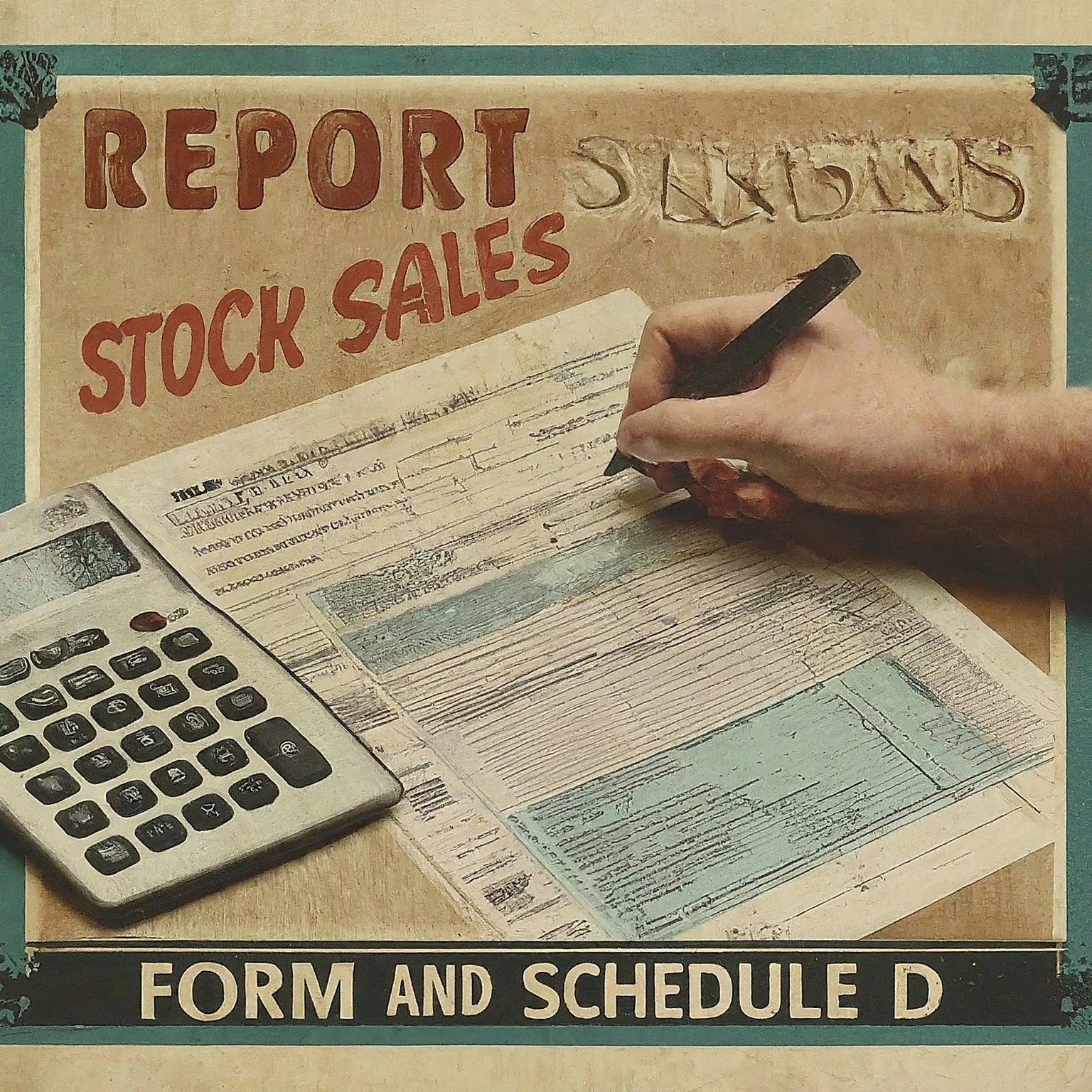
How to Report Stock Sales on Your Tax Return
Stock Market Fundamentals | over 1 year ago

The Impact of State Taxes on Your Stock Investments
Stock Market Fundamentals | over 1 year ago

The Future of Tax Policy and Its Impact on Stock Investors
Stock Market Fundamentals | over 1 year ago

The Impact of Dividend Taxes on Your Investment Returns
Stock Market Fundamentals | over 1 year ago
Frequently Asked Questions
What taxes do I need to pay when investing in stocks?
As a stock investor, you may need to pay capital gains tax on profits from selling stocks and taxes on dividends you receive. The tax rates depend on how long you hold the stocks and the type of dividends you earn.
What is capital gains tax?
Capital gains tax is the tax you pay on the profit when you sell a stock for more than you paid for it. The tax rate depends on how long you held the stock before selling it.
What’s the difference between short-term and long-term capital gains?
Short-term capital gains: Profits from stocks held for one year or less. These are taxed at your ordinary income tax rate, which could be higher. Long-term capital gains: Profits from stocks held for more than one year. These are taxed at a lower rate, typically 0%, 15%, or 20%, depending on your income level.
How are dividends taxed?
Dividends can be taxed as either ordinary income or qualified dividends: Ordinary dividends: Taxed at your regular income tax rate. Qualified dividends: Taxed at the lower long-term capital gains rate, provided they meet certain criteria set by the IRS.
What are qualified dividends?
Qualified dividends are dividends from U.S. corporations or qualified foreign corporations that meet specific IRS requirements. These dividends are taxed at the more favorable long-term capital gains rates.
How can I minimize taxes on my stock investments?
You can minimize taxes by holding stocks for more than a year to benefit from lower long-term capital gains rates, investing in tax-advantaged accounts like IRAs or 401(k)s, and offsetting gains with losses through tax-loss harvesting.
What is tax-loss harvesting?
Tax-loss harvesting involves selling stocks at a loss to offset gains from other investments, reducing your overall taxable income. You can then reinvest in similar assets, but be mindful of the IRS wash-sale rule, which prevents you from claiming a loss if you buy a substantially identical stock within 30 days before or after the sale.
Are there any taxes when I reinvest dividends?
Reinvesting dividends doesn’t avoid taxes. Even if you automatically reinvest dividends to buy more stock, those dividends are still taxable in the year they are paid.
What is the wash-sale rule?
The wash-sale rule prevents you from claiming a tax deduction for a loss if you repurchase the same or a substantially identical stock within 30 days before or after selling it at a loss. This rule is designed to prevent investors from creating tax-deductible losses without actually changing their investment position.
How do taxes work for stocks in a retirement account like an IRA or 401(k)?
Stocks held in retirement accounts like IRAs or 401(k)s grow tax-deferred, meaning you don’t pay taxes on gains or dividends as long as the money stays in the account. With a Roth IRA, qualified withdrawals in retirement are tax-free. With traditional IRAs or 401(k)s, you pay taxes on withdrawals at your ordinary income tax rate.
What is the net investment income tax (NIIT)?
The NIIT is an additional 3.8% tax on investment income, including capital gains and dividends, for individuals with a high modified adjusted gross income (MAGI). For 2024, the income thresholds are $200,000 for single filers and $250,000 for married couples filing jointly.
When do I have to pay taxes on stock investments?
You generally pay taxes on stock gains when you sell the stock (realize the gain) or when you receive dividends. Taxes are due when you file your annual tax return, but if you owe significant taxes, you may need to make estimated tax payments quarterly.
Explore Taxes For Stock Investors
